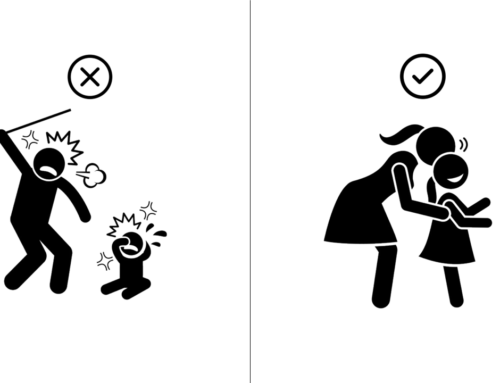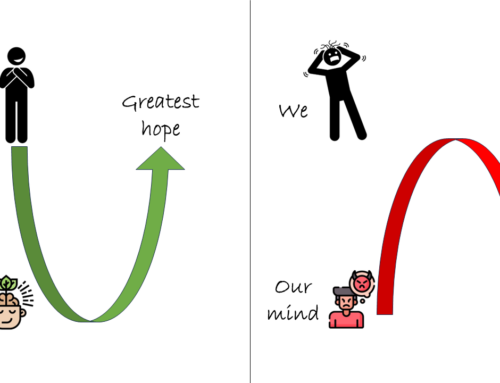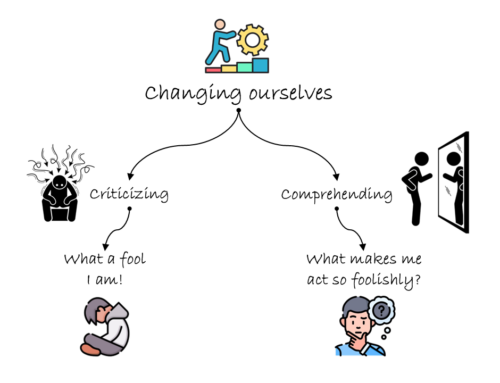Suppose we try to give up an unwanted habit to indulge in some unhealthy pleasure. Unfortunately, we are often undermined and even sabotaged by the memories associated with that indulgence. Such memories keep popping up frequently and insistently in our mind, thereby triggering urges within us and impelling us to succumb. When we relapse despite our best resolutions, we may start thinking of our mind itself as an enemy who is out to destroy us.
The Bhagavad-gita offers a more nuanced understanding of the way our mind works. The mind is a tool for us spiritual beings to interact with the world; and to aid us in making this interaction less demanding, it automates actions that we repeat frequently. This tendency of the mind becomes an obstacle for us only when we unknowingly or unwittingly let ourselves get caught in unhealthy behaviors that we do again and again. Due to our repeated engagement in these behaviors, our mind starts auto-repeating them.
Thankfully however, the mind is value-neutral in automating repeated behavior — that is, it will automate not just repeated unhealthy behaviors, but also repeated healthy behaviors. By thus understanding that the mind with its tendency to auto-repeat is not intrinsically our enemy, we can try to establish a healthier working relationship with it, wherein we act with the confidence that if we repeat healthy behaviors regularly and sufficiently, then those too will become easier to do due to the mind’s value-neutral tendency to automate repetitive actions.
Pertinently, the Bhagavad-gita (06.05) urges us to elevate ourselves with our mind and not degrade ourselves. Understood in terms of the mind’s tendency to auto-repeat, this verse implies that we need to consciously train ourselves to engage in healthy behaviors and thereby cultivate healthy habits while abstaining from the opposite.
Summary:
The mind’s tendency to automate our repeated actions is not the problem; our tendency to unthinkingly engage in unhealthy behaviors repeatedly is the problem — and our engaging consciously in healthy behaviors repeatedly is the solution.
Think it over:
- Why may we start thinking of our mind as our enemy?
- How can we develop a healthier relationship with our mind?
- How can we channel the mind’s tendency to automate repeated actions?
***
06.05: One must deliver himself with the help of his mind, and not degrade himself. The mind is the friend of the conditioned soul, and his enemy as well.
Audio explanation of the article is here: https://gitadaily.substack.com/p/when-the-mind-repeats-things-we-dont

To know more about this verse, please click on the image




Fate has its own turn